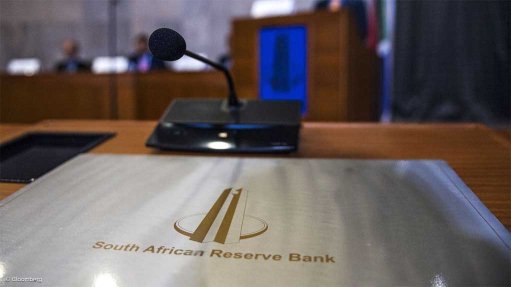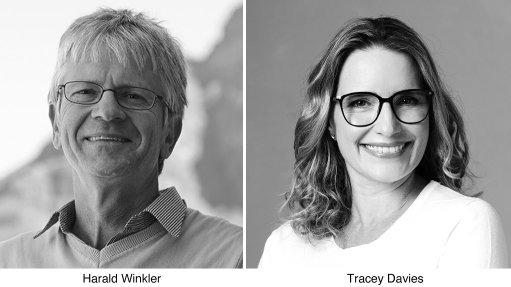High drama awaits Africa in 2024
If all the world's a stage, and all the men and women merely players with their exits and their entrances, Africa is headed for high drama – a heart-stopping and pulse-racing 2024.
The backdrop is arguably the most volatile international environment that the world has seen in a century, underpinned by a sustained coordinated challenge to US global hegemony, notably to political and financial institutions – from the United Nations (UN) to the International Monetary Fund (IMF) and the so-called ‘rules based’ order that has dominated the international arena for 70 years.
Leaders of the Global South reject US dominance through the dollar and its pre-eminence at the IMF, a strategy that has seen both Mali and Sudan kick the UN out of their countries. Power shifts in 2023 have seen not a concentration of power around three major economic blocks – China, the European Union (EU) and the US – but the rise in influence of midsized powers such as the United Arab Emirates (UAE) and Russia to challenge the status quo dominated by the EU and the US.
Once again, Africa – whose regional and continental institutions have failed to prevent it – has become a secondary theatre for this transition to play itself out. Russia’s increased influence in Africa is a second front attack on North Atlantic Treaty Organisation members France and the US, and has seen it provide support to the coup leaders of Mali and Burkina Faso, as well as to Sudan’s rebel Rapid Support Forces (RSF). The New York Times recently reported that the UAE, too, was supplying medical and materiel to the RSF through Chad.
The UAE has become one of the midsized players whose influence on the continent has grown – both from a substantive investment and trade to providing a platform for illicit activity and for indirectly supporting conflicts. A scan of Africa’s trade statistics shows how the UAE’s importance as a major trading partner to several African economies has grown: it has used its petrodollars to invest in African infrastructure through Dubai Ports, in key agricultural and climate change ventures. However, a hard-hitting Al Jazeera documentary this year, The Gold Mafia, showed, too, how Dubai has become a centre for gold smuggling from Zimbabwe for laundering of the proceeds of that smuggling. South Africans smart that Dubai is home with impunity to the infamous State capture Gupta brothers, while the US, the EU and the UK watch how readily Vladimir Putin’s army of oligarchs have made Dubai their home. In the wings sits China, reportedly observing, but clearly aiming to be the main beneficiary of the efforts of the midsized powers. An apparent rescinding of a UK government decision reported in the UK’s Daily Telegraph in December to abandon plans to cede control of the Chagos Islands to Mauritius appear rooted in UK and US politicians’ concerns that Mauritius will side with China and expel the US from its military base at Diego Garcia.
Political volatility will intensify as Africa faces an election-heavy year in 2024, following a year where Africa’s maturing democracies have faced their greatest threats. Important elections this month in Ghana could see the return of John Mahama and raise a prospect, albeit remote, of new leadership in the Democratic Republic of the Congo (DRC). But all eyes in 2024 will be on South Africa and Namibia, where popular distaste for their respective liberation parties, the African National Congress (ANC) and South West Africa People’s Organisation (SWAPO), is at record highs. In the 2019 elections, Namibian’s President Hage Geingob lost 30.5% of the votes, dropping from 87% of votes polled in 2014. Nevertheless, the election will capture the interest of many if SWAPO’s vice-president, Netumbo Nandi-Ndaitwah, wins the polls to become be Namibia’s first female president, bringing to three the number of serving women Presidents in Africa (Ethiopia, Tanzania and possibly Namibia). In South Africa, President Cyril Ramaphosa is expected to carry a limping ANC to a much-diminished win, losing its 50%+1 record, being forced into coalition government and losing control over Gauteng and KwaZulu-Natal. In West Africa, the prospect of a deteriorating security environment will dominate preparations for elections in Senegal, where the incumbent, Macky Sall, has done all he can to engineer the victory of his chosen successor. With elections behind it, Zimbabwe in 2024 will again show the world what a failed State, failed economy and an entrenched kleptocracy looks like. The liberation party elite there, Zanu-PF, has subsumed all the normal functions of the State for the benefit of the elite to the actual daily detriment of the electorate. Zanu-PF’s disregard of regional governance body the Southern African Development Community’s challenge to its elections and of international opprobrium has seen an increase in autocratic behaviour and State-based violence, including the abduction and murder of Zanu-PF’s political opponents.
Politicians across the continent will be watching over their shoulders as they go about their business in 2024. A failed coup attempt in Sierra Leone has followed contested elections held there in June. The risk of military coups d’etat is higher than it has been since the 1980s and will heighten during periods of election volatility. Expect external actors to exploit and exacerbate this volatility through social media. News from Guinea Bissau as I write is that order has been restored after the second bout of military-on-military fighting. Gabon’s coup in August was the latest in the series of surprise coups. Mali, Chad, Gabon, Guinea, Burkina Faso and Niger have all now had elected leaders removed, and in Sudan a coup ended a transition to elected civilian rule. Military leaders have too easily exploited the ruling class’ failure to deliver to their populations, especially as they engage in high levels of corruption. The risk to Africa’s democracies is that it could see a repeat of the 1960s to 1980s, when most countries in the region were under military junta rule. Unsurprisingly, these coups took place in West Africa’s most fragile countries, with Africa’s poorest populations. Islamist and separatist insurgency activity has increased in Mali, Burkina Faso and Niger. In Sudan, full-scale civil war has killed 9 000 people and displaced six-million. International sanctions will tie the hands of coup leaders, make people poorer and exacerbate the deteriorating security environment.
This backdrop of international turmoil, regional instability, the fall-out from Covid-19, and Russia’s colonial war against Ukraine provide the setting for the economy. Barring some extraordinary event, Russia’s war is expected to continue for three years, amid US promises to disrupt Russian oil exports up to 2030. So, Africa can expect continued unpredictability in oil and gas, and wheat supplies. Ongoing sanctions will influence trade and capital availability. Countries like Algeria will benefit as demand for its oil and gas from the EU as an alternative to Russia bolsters its reserves. But the bank of last resort – the IMF – is again prominent in the economies of several countries, despite being one of the targets for the Global South to overthrow. China’s reluctance to agree concessions on debt terms probably means that innovative IMF solutions like Highly Indebted Poor Countries, which cancelled poor counties’ debt, are consigned to history. Unmanageable debt led to default in Ghana and Zambia, and both countries’ recovery depends on their IMF-led plans. In Zambia’s case, excessive debt and limited debt restructuring will hamper President Hakainde Hichilema’s ambitious development plans.
IMF recovery programmes also present opportunity as Kenya and Angola launch ambitious privatisation plans in 2024. Angola is selling all or part of its oil company, Sonangol, its diamond companies, Endiama and Sodiam, the national airline and hotel chains. Kenya, meanwhile, is looking to offload the Kenyatta International Convention Centre, National Oil Corporation, Kenya Seed Company, Mwea Rice Mills and Western Kenya Rice Mills, Kenya Pipeline Company, New Kenya Cooperative Creameries and Kenya Vehicle Manufacturers.
Africa’s greatest opportunity is in its own development. Its continued collective commitment to implementing the Africa Continental Free Trade Agreement provides the continent with its greatest economic opportunity. It has all the resources to control and supply the world’s green energy transition. Speedy development of the Lobito Corridor and Angola’s Lobito Port to the Atlantic with rail links to Zambia, Tanzania and the DRC will be key to meet global demand for copper is essential. Kenya remains the continent’s premier example of how a country can transition to renewable energy while expanding electricity provision to even its most remote population. It is rightly exporting this know-how. Namibia is fast on the road to becoming a green energy hub as it builds its green hydrogen infrastructure. In 2024’s tinder-box political, economic and climate environment, how Africa’s leaders harness the continent’s critical resources and manage external interference will determine whether it directs its future or is reduced to a mere player.
Article Enquiry
Email Article
Save Article
Feedback
To advertise email advertising@creamermedia.co.za or click here
Press Office
Announcements
What's On
Subscribe to improve your user experience...
Option 1 (equivalent of R125 a month):
Receive a weekly copy of Creamer Media's Engineering News & Mining Weekly magazine
(print copy for those in South Africa and e-magazine for those outside of South Africa)
Receive daily email newsletters
Access to full search results
Access archive of magazine back copies
Access to Projects in Progress
Access to ONE Research Report of your choice in PDF format
Option 2 (equivalent of R375 a month):
All benefits from Option 1
PLUS
Access to Creamer Media's Research Channel Africa for ALL Research Reports, in PDF format, on various industrial and mining sectors
including Electricity; Water; Energy Transition; Hydrogen; Roads, Rail and Ports; Coal; Gold; Platinum; Battery Metals; etc.
Already a subscriber?
Forgotten your password?
Receive weekly copy of Creamer Media's Engineering News & Mining Weekly magazine (print copy for those in South Africa and e-magazine for those outside of South Africa)
➕
Recieve daily email newsletters
➕
Access to full search results
➕
Access archive of magazine back copies
➕
Access to Projects in Progress
➕
Access to ONE Research Report of your choice in PDF format
RESEARCH CHANNEL AFRICA
R4500 (equivalent of R375 a month)
SUBSCRIBEAll benefits from Option 1
➕
Access to Creamer Media's Research Channel Africa for ALL Research Reports on various industrial and mining sectors, in PDF format, including on:
Electricity
➕
Water
➕
Energy Transition
➕
Hydrogen
➕
Roads, Rail and Ports
➕
Coal
➕
Gold
➕
Platinum
➕
Battery Metals
➕
etc.
Receive all benefits from Option 1 or Option 2 delivered to numerous people at your company
➕
Multiple User names and Passwords for simultaneous log-ins
➕
Intranet integration access to all in your organisation


















